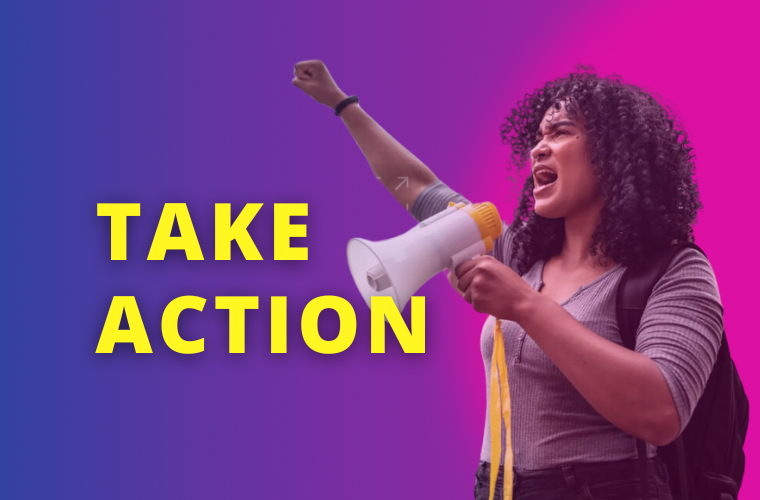

Defending Survivors: California’s AB 933 Takes a Stand Against Retaliation
Increasingly, survivors of sexual assault, sexual harassment, and other forms of harassment, and discrimination are facing legal battles when they come forward to share their stories. More survivors than ever are publicly holding their harmers accountable, but simultaneously, there has been a growing trend of harmers responding by filing or threatening to file meritless defamation lawsuits.
These lawsuits are meant to silence and intimidate survivors from speaking their truth, plain and simple. Even worse, they are costly, painful, and time-consuming for the survivor, who must defend themself from the legal action.
California lawmakers have the opportunity this year to help mitigate the burden of survivors speaking their truths with Assembly Bill 933, “Protecting Survivors from Weaponized Defamation Lawsuits.”
Introduced by Assemblymembers Aguiar-Curry and Ward, AB 933 will expand protections for survivors against retaliatory defamation lawsuits. It clarifies that claims made in good faith are considered protected speech. In doing so, the bill would make it harder for perpetrators to retaliate against survivors with legal threats and intimidation.
Perpetrators often use retaliatory defamation lawsuits because they know survivors may not have the financial and emotional capacity to defend themselves. This bill will alleviate that burden.
Equal Rights Advocates and the California Employment Lawyers Association are sponsors of the bill, and survivor Pamela Lopez is a strong supporter. In trying to remedy the harm inflicted upon her, Pamela, a survivor and advocate, faced a defamation lawsuit after bravely speaking out about her experience of being sexually assaulted by a California Assemblymember. When the Assemblymember sued Pamela for sharing her story publicly, she was subjected to exorbitant legal fees and a lengthy court battle. Ultimately, Pamela prevailed and won her appeal in 2021, but at a very high cost, both economically and emotionally after several years of drawn out and painful litigation.
The Assembly Judiciary Committee is sending a clear message that our justice system cannot be used as a weapon to further harm and silence survivors of sexual assault, harassment, and discrimination who speak out,” said Jessica Ramey Stender, Policy Director & Deputy Legal Director of Equal Rights Advocates.
ERA supported Pamela’s case by filing an amicus brief in 2021, represented by law firm Reed Smith. Her case highlights the need for stronger protections for survivors against these kinds of retaliatory lawsuits. Unfortunately, she is one of many survivors to have faced such a devastating experience. Countless others have decided not to come forward at all due to fear of being hit with a retaliatory defamation suit.
“It is also an attempt to take away the power of every person who wants to be part of a conversation with survivors about how we wind up in a culture that perpetuates sexual assault and sexual harassment,” Pamela said while advocating for the bill.
The #MeToo movement brought the issue of sexual assault and harassment to the forefront, giving survivors a platform to share their stories and exposing a culture that perpetuates such abuse across all sectors of employment and society. Yet this level of attention on survivors has been met with backlash from abusers.
A growing concern among survivors and advocates has been the use of Strategic Lawsuits Against Public Participation, known as SLAPP lawsuits. The threat of having to engage in years of litigation, relive the personal trauma of abuse in court, and take on the burden of responding to an expensive, resource-draining SLAPP suit further harms survivors and causes a chilling effect that discourages others from coming forward to share their experiences.
It is crucial to strengthen the legal right to speak out and provide survivors with adequate protections to share their truth without fear of legal retaliation. AB 933 expands California protections for speech made by survivors about their own experiences of sexual assault, harassment, or discrimination.
This bill will encourage survivors to speak their truth and expose the behavior of those who harmed them. Survivors should not have to bear the burden of defending themselves against meritless lawsuits, and they deserve to be heard and believed.
You can take action and email CA lawmakers to support this vital protection for survivors. Let’s come together to make sure that survivors of sexual assault, harassment, and discrimination are not silenced by legal threats and intimidation.
Stay Connected & Take Action
- Get the Latest News & Information Sign up for Email Updates
- Sign Up for Action Alerts Join the Action Team
- Follow Us


